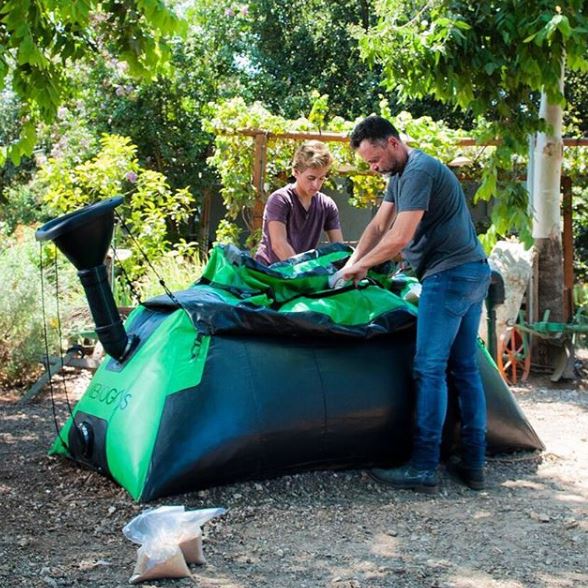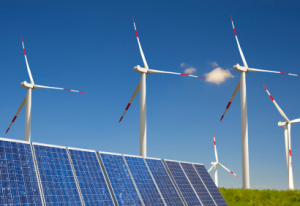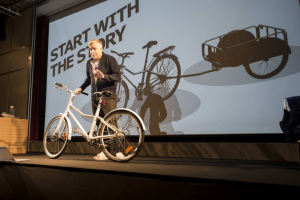During a trip in India, Yair Teller, then a curious student and today the co-founder and CSO of Homebiogas, saw a family cooking on gas in a village of people who predominantly cooked over firewood. This was quite shocking.
The family used the biogas their biodigester produced from food waste to cook their food, and the fertilizer it produced to nourish flowers, which they then sold in the market to create extra source of revenue. They got all of those benefits simply from recycling their cow’s manure in a biodigester.
Fast forward a few years and Yair was joined by Oshik Efrati (CEO) and Erez Lanzer (CFO). The three proceeded to start HomeBiogas the company in 2012, with the main goal of spreading affordable, sustainable and renewable energy to the whole world.
The Association for Sustainability in Business got the chance to speak with Yair about HomeBiogas, off the grid living and the importance of sustainable living.
Q. What is HomeBiogas?
A. Using an anaerobic process, the HomeBiogas 2.0 system takes organic waste (e.g. fruits, veggies, meat, dairy pits, seeds, animal manure etc.) and turns it into cooking gas and liquid fertilizer. This enables you to create renewable energy in your own backyard and close an eco-cycle!
Instead of throwing your food scraps in the garbage, where it will rot in landfills and will emit methane into the atmosphere, you can simply throw your food scraps into HomeBiogas 2.0. The system can accept up to 4KG of organic waste a day, and in return, produces up to 3 hours of cooking gas a day AND up to 12 L of liquid fertilizer a day. With an estimated life span of 10 years, the system is built in a modular way though, so any part can be easily replaced without replacing the entire system.
Inside the HomeBiogas 2.0 digester there is over 1,000 L of water and bacteria that consume the leftovers thrown inside the system. The bacteria break down the leftovers and emit methane, the main component of the biogas that allows the gas to be flammable for cooking.
The HomeBiogas 2.0 system arrives as a DIY (do-it-yourself) kit. You can assemble it in about an hour. To understand exactly what can you put inside the HomeBiogas 2.0 system, click here.
Q. What does it mean to live ‘off the grid?’
A. Living off the grid means being independent when it comes to resources, may it be water supply, electricity, cooking gas or even waste management.
People that choose to live off grid are self-sufficient people that rather use existing and every-day resources to live a more simple or sustainable life.
Because off gridders provide for themselves and their needs, they have a sense of freedom, independence and control over their lives.
Q. What else can you do to live more sustainably?
A. Having an organic garden is a way of ensuring you take in all the good things that you need, and your food is free of things that can cause you harm (such as the pesticides). From an ecological standpoint- Growing food in your backyard requires much less energy than produce from the supermarket. Why? Produce from the supermarket is packaged with plastics and Styrofoam which cannot be recycled or broken down easily. This packaging is totally unnecessary for a home organic garden.
To get more information on HomeBiogas, browse the Knowledge Center.
Interested in finding out more about innovative sustainable solutions?
Explore the liveability of our metropolitan and regional urban centres at the 2018 Liveable Cities Conference this July.
This year’s conference will focus on sustainable transport solutions, greening and redesign of cities, renewing regional areas, integrating community decisions, government policy, health and wellbeing and strategies for environment implementation.
Register to secure your place here.



